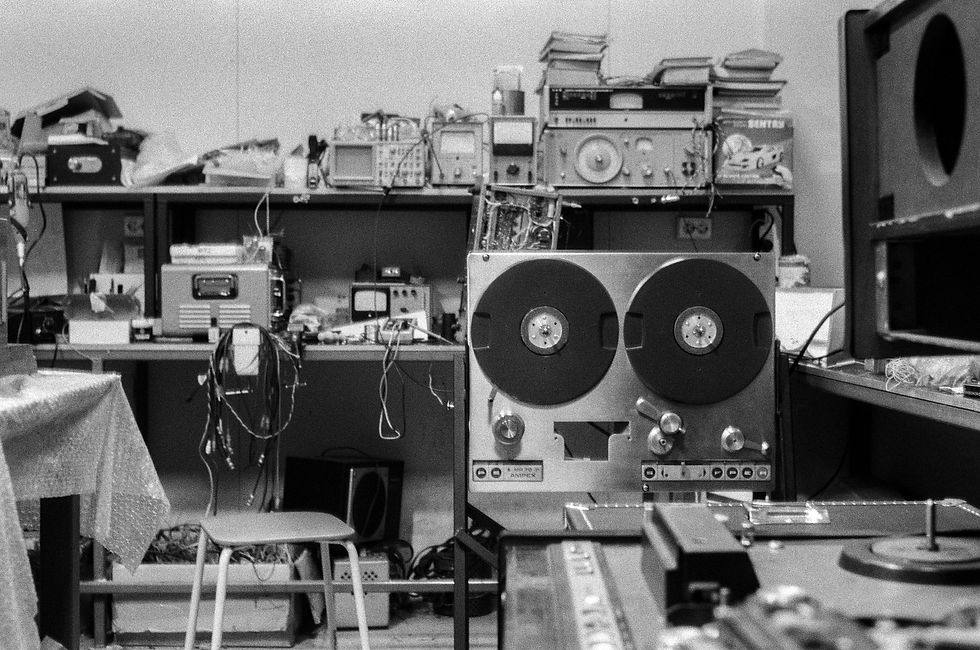Why a Human Audio Engineer is Better Than AI for Music, Film, and Media Production.
- prodellostudios
- Mar 13
- 2 min read

Introduction
With artificial intelligence advancing in music and film production, many wonder if AI can replace human audio engineers. AI-powered tools like LANDR, iZotope Neutron, and automated mastering services offer quick solutions, but they lack the artistry, intuition, and experience of professional engineers. This article explores why human engineers remain the superior choice.
1. AI Lacks the Human Touch & Creativity
AI algorithms analyze audio based on pre-programmed rules and datasets, but they cannot truly “feel” music. Human engineers, on the other hand, bring years of experience, artistic intuition, and emotional depth to their work. A blind test conducted by Jordan (2024) demonstrated that human engineers consistently produced higher-quality masters than AI-based mastering services, emphasizing the importance of trained ears and personal expertise (Jordan, 2024).
2. Contextual Decision-Making & Adaptability
Audio engineering isn’t just about following a formula—it requires critical listening and adaptability. AI struggles to make context-based decisions, such as:
Adjusting a mix to suit the mood of a film scene
Optimizing sound for different playback environments
Adapting EQ and compression techniques to the artist’s unique style
Since AI cannot interpret artistic intent, human engineers remain essential in achieving the best sonic results (Gearnews, 2024).

3. Professional Engineers Offer a Tailored Approach
AI mastering tools often apply one-size-fits-all presets, which may not align with an artist’s unique sound. In contrast, human engineers customize their approach based on:
Artist’s vision and creative direction
Music genre and production style
Personalized mixing and mastering preferences
This tailored approach results in a more polished and professional final product (Sound On Sound, 2024).
4. AI Is a Tool, Not a Replacement
While AI can assist with tasks like noise reduction, automatic leveling, and spectral analysis, it should be seen as a supplement, not a substitute, for human expertise. Industry professionals agree that AI can streamline workflows but still requires human oversight to ensure quality results (Production Expert, 2024).

5. AI Struggles with Complex Audio Post-Production
In film and TV production, audio engineering involves intricate processes like:
Dialogue editing and ADR synchronization
Foley sound design and effects layering
Mixing for immersive formats like Dolby Atmos
AI lacks the ability to make artistic choices in these areas, making human engineers indispensable for high-quality post-production work (MusicTech, 2024).
Conclusion
AI is a valuable tool, but it cannot replace the craftsmanship, intuition, and adaptability of a skilled human audio engineer. Whether for music mastering, film sound design, or audio post-production, professional engineers remain the gold standard for achieving high-quality results.
References
Gearnews. (2024). AI mastering put to the test: Man vs. Machine. Retrieved from https://www.gearnews.com
Jordan, B. (2024). Human vs. AI Mastering: Who does it better? Retrieved from https://www.soundonsound.com
MusicTech. (2024). Why AI can’t replace professional engineers in film and music. Retrieved from https://www.musictech.com
Production Expert. (2024). The future of AI in mixing and mastering. Retrieved from https://www.production-expert.com
Sound On Sound. (2024). AI vs. human mixing: The limitations of artificial intelligence. Retrieved from https://www.soundonsound.com


Comments